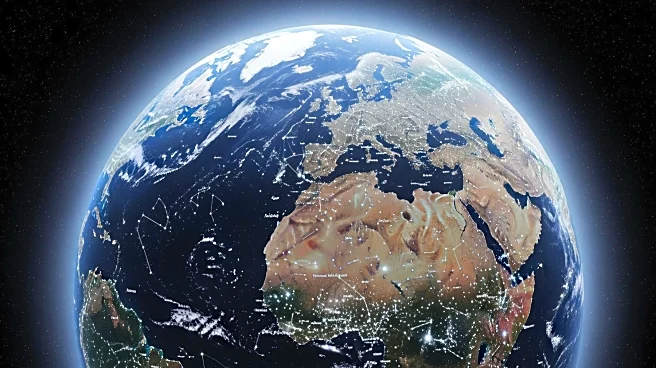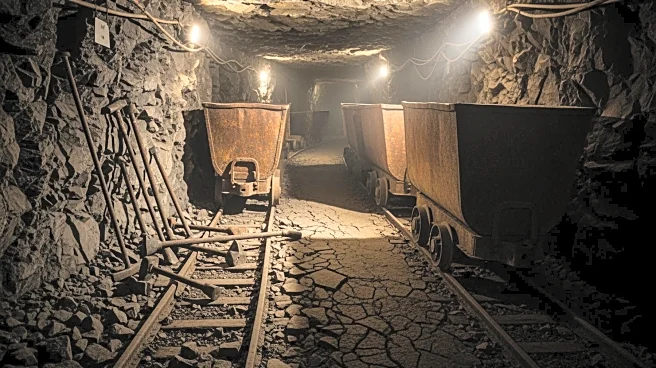What's Happening?
A recent study from Yonsei University in South Korea suggests that dark energy, previously thought to be driving the accelerated expansion of the universe, may be weakening over time. This challenges the Nobel
Prize-winning theory of dark energy and raises the possibility of a 'Big Crunch,' where the universe could eventually contract rather than expand indefinitely. The study, published in the Monthly Notices of the Royal Astronomical Society, analyzed the ages of 300 host galaxies and found variations in the properties of stars in the early universe, leading to the conclusion that the expansion rate has slowed down. This finding is likely to spark debate within the cosmology community, as it contradicts the prevailing understanding of the universe's fate.
Why It's Important?
If confirmed, this study could revolutionize our understanding of the universe's future, potentially altering the fundamental theories of cosmology. The implications are profound, as it suggests that the universe might not expand forever, but instead could reverse into a 'Big Crunch.' This would challenge existing models and require a reevaluation of the forces at play in cosmic expansion. The study also highlights the importance of reexamining assumptions in scientific research, as it suggests that previous estimates of the universe's expansion were based on incorrect assumptions about supernova brightness. The findings could lead to new insights into the nature of dark energy and its role in the universe.
What's Next?
The study is expected to face skepticism and will likely be subject to further scrutiny and debate within the scientific community. Researchers may conduct additional observations and experiments to verify the findings and explore the implications for cosmological models. The influential Desi consortium has reached similar conclusions, indicating that a fierce debate is opening up in cosmology over the nature of dark energy and the probable fate of the universe. Future research may focus on refining measurements of galaxy properties and supernova brightness to better understand the universe's expansion dynamics.
Beyond the Headlines
The study raises ethical and philosophical questions about the nature of scientific inquiry and the willingness to challenge established theories. It underscores the importance of maintaining an open mind in scientific research and the potential for new discoveries to reshape our understanding of the universe. The findings also highlight the interconnectedness of scientific disciplines, as advancements in technology and data analysis play a crucial role in uncovering new insights into cosmic phenomena.








